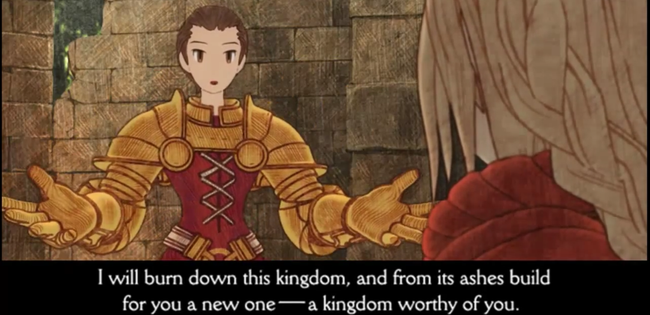
How Final Fantasy Tactics Was, Is, and Will Forever Remain a Masterpiece
Final Fantasy Tactics is a game I’ve long held a high degree of adulation for. Not only does it require a decent investment of your time and patience, but it also expects a level of mental capacity to comprehend its deep intricacies.
Every single aspect required a thoughtful process to succeed. Every decision carried with it a sense of gravity. Too many poor decisions could lumber you with a mediocre party - a high level alone isn’t enough. With an unforgiving difficulty curve, careful planning was a necessity.
I enjoyed keeping a journal with pages of notes on my characters and battle plans. I’d map out roughly where I wanted characters to be later on in the adventure. There was never an ideal build I had to stick to - just one that I felt would fit my particular play style. This intense strategizing allowed this tactical RPG to sink its hooks into me.
The very core of Tactics lies in its elaborate job system, which serves as a massive improvement over Final Fantasy V’s initial effort. Players have access to a wide variety of classes, each with their own unique traits that are well worth exploring.
Every job can also be leveled individually, and once a skill has been mastered, you can equip them to your person permanently. This meant you could have a dual-wielding Ninja with a Monk's high HP and the ‘Jump’ ability of a Dragoon. New jobs are constantly being unlocked over the course of the game, allowing for a massive amount of combinations and endless hours of replayability.
In battle, grid-based movement combines with traditional strategy mechanics to create a remarkable level of depth. Understanding how the terrain affects the flow of combat can be your key to victory. Height must also be taken into consideration - those who stand on the high ground can deal more damage to enemies below and vice versa.
Part of the reason Final Fantasy Tactics is so brilliant is how unbalanced it is depending on the approach you take. One of the more famous examples among the fanbase is using the Calculator mage to cast Holy on every enemy standing at a certain elevation that is also a prime number. This will in turn one-hit kill every person on the map including the mage. The only way you can survive is if you had a piece of equipment that makes you invulnerable to Holy damage.
It all comes down to their class description: “These calculating strategists employ the principles of arithmetic law to pinpoint targets for their attacks.” After choosing a certain numerical base and attribute, everyone on the field is affected by their spells.
It’s these idiosyncratic quirks that give the game so much of its charm, while also providing a ludicrous amount of character customization. We haven't even gotten into the broken characteristics of Blade Grasp or Chantage. With so many paths to take, no two playthroughs ever have to be the same.

Final Fantasy Tactics is a game that rewards long-term execution. If I wasn’t able to succeed in a particular encounter, all I needed to do was tweak my strategy a little to find myself far better off as a result. Its visual design was also a departure from Final Fantasy tradition at the time.
The characters have an interesting look about them - this is a bright, colorful world but also gritty and believable as a world at war, and the character portraits are intricately detailed. You also get sprinklings of the lore through the occasional spell chants (something that was sadly removed in War of the Lions).
The main plot also sets it far apart from the mainline series. It’s a heavily-layered tale that tells the story of the Kingdom of Ivalice. A fifty-year war has just ended, but wartime tension remains at an all-time high, with Ivalice trapped in a power vacuum thanks to the death of their King. The two princes are battling over the throne, while the church also gets involved for their own noble-but-nefarious reasons.
Everything is framed from the perspective of a scholar recalling the events of the Zodiac Brave Story. We follow the plight of two close friends, Ramza and Delita. Despite being from opposing social classes, they stand side-by-side on the battlefield.
However, things quickly change following a sequence of events. Delita is soon touted as a war hero who helped to bring about peace, while Ramza is labeled a heretic, excommunicated and accused of trying to orchestrate mankind’s destruction.
Players see the tale’s pivotal moments through Ramza’s eyes, leading to a very somber tone that perpetuates throughout the journey. Due to how the story is structured, fans are left having to draw their own conclusions. All the while, Ivalice’s strict social structure colors many of the encounters. From trying to stop a group of thieves from pillaging a town just to survive to helping a group of indentured servants escape from slavery, Final Fantasy Tactics is rife with socioeconomic discord.
As I get older, I have a deeper understanding of the tactical gameplay and the plot’s many complexities. It’s a fascinating tale of love, betrayal, corruption, politics, religion, class warfare, and so much more; elements that weren’t quite capitalized on later entries. Combined with a beautiful soundtrack and wonderful visual flair, and it’s no surprise that it set the benchmark for not only tactical RPGs but what the genre is able to accomplish. Over 20 years later, I still consider Final Fantasy Tactics to be a true masterpiece. Oh, and all hail Thunder God Cid.